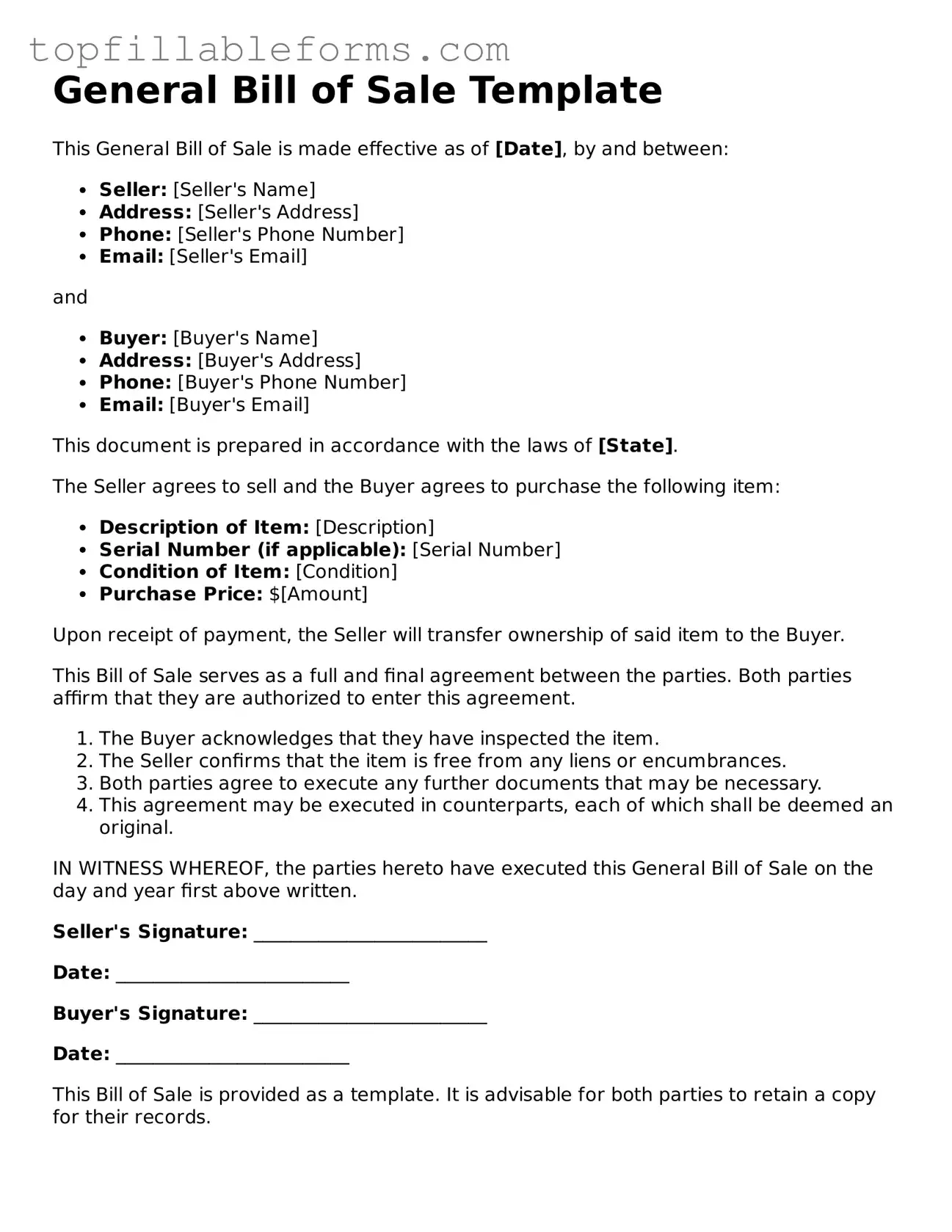Free General Bill of Sale Form
A General Bill of Sale is a legal document that serves as proof of the transfer of ownership of personal property from one party to another. This form details the transaction, including the description of the item sold, the sale price, and the date of transfer. It provides essential protection for both the buyer and seller by documenting the terms of the sale.
Open General Bill of Sale Editor Here

Free General Bill of Sale Form
Open General Bill of Sale Editor Here
Finish the form now and be done
Finish your General Bill of Sale online by editing, saving, and downloading fast.
Open General Bill of Sale Editor Here
or
▼ PDF File
